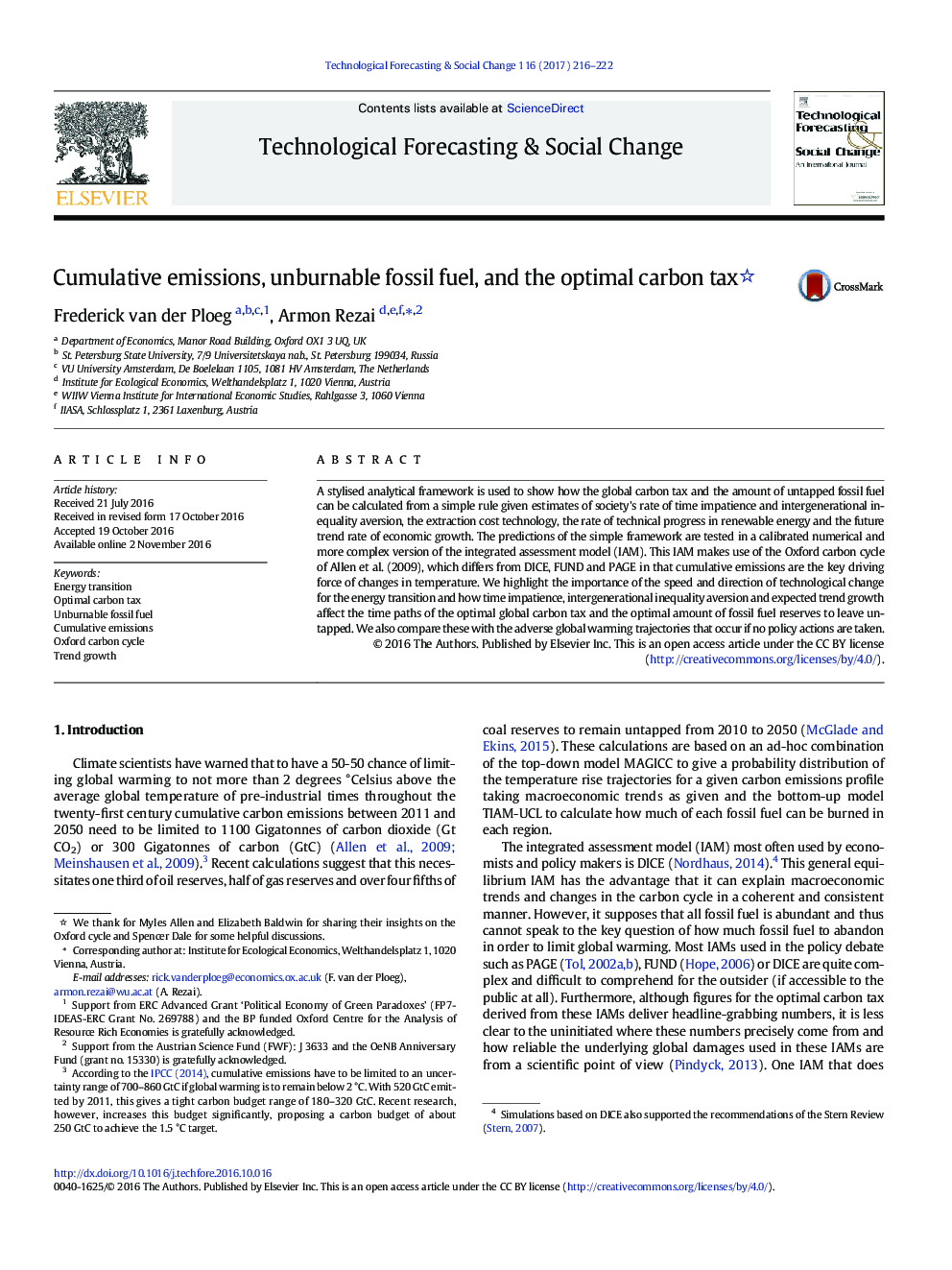| Article ID | Journal | Published Year | Pages | File Type |
|---|---|---|---|---|
| 5037011 | Technological Forecasting and Social Change | 2017 | 7 Pages |
â¢We present a stylised analytical integrated assessment model.â¢We compare scenarios with and without climate policy.â¢We highlight the importance of the speed and direction of technological change for the energy transition.â¢This IAM makes use of the improved Oxford carbon cycle of Allen et al. (2009).
A stylised analytical framework is used to show how the global carbon tax and the amount of untapped fossil fuel can be calculated from a simple rule given estimates of society's rate of time impatience and intergenerational inequality aversion, the extraction cost technology, the rate of technical progress in renewable energy and the future trend rate of economic growth. The predictions of the simple framework are tested in a calibrated numerical and more complex version of the integrated assessment model (IAM). This IAM makes use of the Oxford carbon cycle of Allen et al. (2009), which differs from DICE, FUND and PAGE in that cumulative emissions are the key driving force of changes in temperature. We highlight the importance of the speed and direction of technological change for the energy transition and how time impatience, intergenerational inequality aversion and expected trend growth affect the time paths of the optimal global carbon tax and the optimal amount of fossil fuel reserves to leave untapped. We also compare these with the adverse global warming trajectories that occur if no policy actions are taken.
